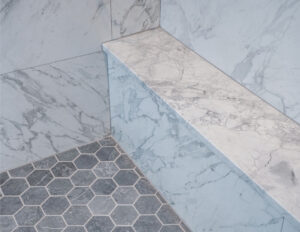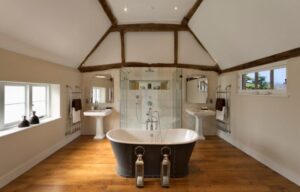So, You Want to Build an ADU in Denver? Let’s Talk Dollars (and Sense)
Hey there, fellow Denverites! Ever stared at your backyard and thought, “Hmm, that’s a lot of space for just a rusty grill and a sad-looking lawn chair”? Or maybe you’ve dreamed of turning your basement into something actually useful—like a cozy rental unit or a mother-in-law suite that doesn’t feel like a dungeon? If you’re nodding along, you’re probably wondering: “How much does it actually cost to build an ADU in Denver?”
We get it. Accessory Dwelling Units (ADUs) are exploding in popularity here, and for good reason. They add value, create rental income, and give you extra space without the hassle of moving. But let’s cut through the fluff and talk real numbers, hidden costs, and why working with a pro like Verified Builders (shameless plug—we’re local!) saves you time, money, and sanity. Buckle up—we’re diving into the nitty-gritty.
Breaking Down the Basics: ADU Costs 101
First things first: what’s the damage to your wallet? In Denver, ADU costs swing wildly based on size, style, and whether you’re building new or converting existing space. Let’s toss out some ballpark figures (and no, we’re not talking Coors Field prices):
- Prefab or Modular ADUs: $100,000 – $200,000
- Garage Conversions: $80,000 – $150,000
- Basement ADUs: $60,000 – $120,000
- Detached New Construction: $150,000 – $300,000+
Before you spit out your coffee, remember: this isn’t Monopoly money. ADUs are real investments, but they also pay off. Denver’s zoning laws have loosened up, making it easier to build, but you’ll still need a reliable home renovation contractor (hi, that’s us!) to navigate permits, design, and construction.
What Factors Influence ADU Costs in Denver?
Let’s play a game: “Why is my quote so high?” Spoiler: It’s not just lumber and labor. Here’s the lowdown:
1. Size Matters (But So Does Complexity)
A 500 sq.ft. studio will cost less than a 1,200 sq.ft. two-bedroom with a kitchenette. But even a small space can get pricey if you’re adding plumbing, electrical, or luxury home renovations like heated floors or smart home tech.
2. Site Prep: The Silent Budget Killer
Sloping yard? Rocky soil? Old plumbing? Site work can add $10,000–$30,000 faster than you can say “basement contractors near me.” Always get a soil test and survey first—trust us.
3. Permits & Red Tape
Denver’s permit process is… a vibe. Fees range from $5,000 to $15,000 depending on your project. And let’s just say dealing with the city is about as fun as a root canal. A good general contractor (wink) handles this for you.
4. Custom Remodels vs. Cookie-Cutter Designs
Want a basic box? Cool. Want vaulted ceilings, custom cabinets, and a spa-like bathroom? Bathroom remodeling alone can add $20k–$50k. Customization = $$$, but it also boosts your ROI.
Why Bother with an ADU Anyway?
Glad you asked! Here’s why your neighbors are jumping on the ADU train:
- Rental Income: Charge $1,500–$3,000/month in Denver’s crazy rental market. Cha-ching!
- Multigenerational Living: No more awkward Thanksgiving debates about Aunt Karen’s “temporary” stay.
- Home Value Boost: ADUs can increase property value by 20–30%. Take that, Zillow!
But here’s the kicker: You need a pro to maximize returns. A sloppy DIY job or a cut-rate contractor could tank your investment. IMO, that’s where Verified Builders shines—we’ve got the reviews to back it up.
How Verified Builders Makes ADUs Less Scary (and More Awesome)
Confession time: We’re obsessed with ADUs. Like, really obsessed. Here’s why partnering with us beats Googling “home addition contractor near me” at 2 a.m.:
- Soup-to-Nuts Service: From permits to paint colors, we handle it. No stress, no surprises.
- Transparent Pricing: No hidden fees. Just honest quotes and zero “gotcha” moments.
- Local Know-How: Denver’s rules are quirky. We’ve mastered them, so you don’t have to.
Whether you’re eyeing a basement remodel or a whole house remodeling project that includes an ADU, we’ve got your back. FYI: Our bathroom renovation contractors are magicians with small spaces.
Common ADU Cost FAQs (Because Google Can’t Answer Everything)
Let’s tackle the big questions:
1. “Can I build an ADU for under $100k in Denver?”
Maybe. If you’re converting existing space (like a basement or garage) and avoid high-end finishes, it’s possible. But don’t skip essentials like insulation or legal egress—it’ll cost you later.
2. “How long does it take?”
6–12 months, depending on permits and design complexity. Pro tip: Start planning now.
3. “Should I DIY to save money?”
Unless you’re a licensed electrician/plumber/contractor… hard pass. Mistakes mean costly rework and potential safety issues.
Ready to Start Your ADU Journey? Let’s Chat!
At Verified Builders, we live for turning “What if?” into “Hell yes!” Whether you’re dreaming of a luxury home renovation or a simple backyard studio, we’ll make it happen—on budget and on time.
TL;DR: Building an ADU in Denver costs between $60k–$300k+, but the ROI (and bragging rights) are worth it. Skip the headache of vetting “basement contractors near me” and call the pros who actually answer their phones.
So, what’s next? Grab a coffee, check out our 5-star reviews, and give us a shout. Let’s build something awesome together—your future tenants (or in-laws) will thank you. 😉
Quick Cost Comparison Table
| ADU Type | Avg. Cost Range | Timeline | Best For |
|---|---|---|---|
| Basement Conversion | $60k – $120k | 4–8 months | Rental income, multigen living |
| Detached New Build | $150k – $300k+ | 8–12 months | Luxury units, max ROI |
| Garage Conversion | $80k – $150k | 6–10 months | Mid-budget, quick turnaround |
Final Thought: ADUs aren’t just trendy—they’re smart. And with Verified Builders, you’ll get a partner who’s as invested in your project as you are. Let’s turn that backyard eyesore into Denver’s coolest tiny home. 😎


